No big fanfare tonight, no rockets into the sky, just the usual pack of poets quietly casting off to sail the waters of imagination. We were not disappointed.
Alan’s “Modest Journey Through” took us through a series of images of mother earth in the peace of a warm night. The peaceful, soothing tone rose above contentious specifics of philosophy to conclude “balanced on the fullness of a heart.”
Rachael presented “At the Farm Stand; Grandma W. Talks about a Customer with Her Daughter,” a poem with obvious merit as a performance piece. It succeeds admirably in what it sets out to do: bring Grandma W. to life on the printed page through a monologue in Grandma’s heavily-accented American English. Accented from the standpoint of someone from the northeast, that is. It sounds like Grandma W. could be from anywhere between Arkansas or Oklahoma to Appalachian Virginia. The proof that the accent is captured on the page was that the second reader read it as effectively as Rachael’s first reading. The poem, as Dan and Art pointed out, reads like part of a script, but stands as a poem.
A review of any written work should, I believe, be done by someone other than the author of that work. Novelists don’t write reviews of their own novels; artists don’t write reviews of their own exhibitions. I am not the one to review “Seeing The Light,” my poem about a kid getting bombed on a cup of communion wine at church. Anyone else that attended the meeting is welcome to review it. This blog gives readers the option of submitting comments, an option that is little used. Use it. It’s a free country.
Kathy McCabe’s “The Wrong Side” did a good job stating its theme of social status being influenced by where you live. Comments centered around how to improve its poetic qualities without losing the message. Alan noted the first two verses leaned toward a prose style, while several people offered ideas to strengthen the last verse. After the initial muse arrives, as it has in this case, the revision muses often take their own sweet time coming around, and we never know what comment will spark the arrival of one in the poet’s mind.
A poem that elicits no comments is usually one that is excellent or one that fails to communicate. When a poem gets a lot of comments, the poet can safely conclude he or she is on to something. Dan’s “The Power Within” generated much discussion, ranging from genetics to use of the passive voice. Barbara felt this poem was too instructional, that it should have more of a personal touch. Alan thought voice was the key, and its use needed more consistency. Well supplied with musings on science and thought-provoking questions, this work succeeds in stimulating the mind, but for me would benefit from sounding less objective and scientific. Content was not the question here, delivery of the idea was.
Coincidence worked to the advantage of all who attended this meeting. It is the only way to explain the appearance of Grandma W. and Adolph K. on the same Thursday night, but that’s exactly what happened. Art’s “Homage to A Chest Thumper,” a two and a half page poem about a Polish immigrant, relied heavily on the technique of the man telling his own story in heavily-accented English. Enhanced by a skilled theatrical reading from the author, it could have been ten pages and held my interest. Adolph, who lived a life most people only read about in novels, escaped from the Nazis, then the Soviets, before arriving in the United States. Crammed with interesting details that bring out his personality, the poem leaves the reader or listener wanting to know more about a man who was born to succeed in life. This poem was a hit; with any luck those who missed it will hear Art read it sometime in the future. Catch Art and Rachael reading tonight’s poems at the same open mic and you’ll be doubly lucky.
Tim likes to put his poems in the crucible of criticism very soon after getting them on paper. He did it again with “The Last Time I Saw Kookie,” a poem about his cat. It wasn’t at all clear it was about a cat, or even an animal, until we combed the verses for the few clues given about the subject’s identity. Mimi thought it was vague, lacking in vitality. The fact that many of us couldn’t identify the subject cat with certainty demonstrates the need for more clarity. With more specific references this poem will improve considerably; it already has a strong ending. Much of what Tim was alluding to came to light after his explanatory comments, but as Lawrence Ferlinghetti once said: “Like a bowl of roses, a poem should not have to be explained.”
Mimi brought “Man, 44, Announces Engagement,” a piece that effectively showcases both her happiness and annoyance when she received the news of the engagement. I would be annoyed too if someone close to me delivered a heavyweight piece of news through the commonplace, often tacky medium of email, rather than calling to tell me personally. An apparently unintended hard edge crept into the poem with the reference to his handing over “our mother’s ring” to his fiancé. Nearly everybody picked up on this, so obvious was it, but Mimi said no, there was no such hard feeling. Maybe there’s something subconscious going on here, to have such an effective miscommunication appear in a poem. My opinion is to leave it in. It makes a better poem. We’re not dealing in court testimony here. Bend the truth if a better poem results.
Cathy Anderson’s “Anniversary” is a meditative reflection on the sadness of anniversaries that can no longer be celebrated with the joy of former days because someone who figures prominently in the memories is gone. This poem, as Barbara said, has much feeling, and says a lot in a few lines. Comments centered on the third verse, which Mimi felt tended too much toward prose after the poetic first two verses. What stays with me about this piece was the static Cathy took for using “ribbon of blue” as a description of the Hudson River. Several people criticized its use as too much of a cliché, while “wrong side of the tracks” in Kathy’s poem drew no comments about clichés at all. My feeling is that criticism of the “ribbon of blue” was overdone. I agree with Samuel Goldwyn, who said: “Let’s have some new clichés,” but many of the old ones still have their place.
Jim got the whole group talking with an untitled piece of concrete poetry, a type of poetry which has to be seen to appreciate its artistic merits. Reactions varied considerably. Alan, Rachael, and Tim didn’t warm to the art form, while Barbara found it “utterly fascinating. There’s more here than meets the eye.” There is nothing here that meets the ear, as it can’t be read without making the reader sound like a babbling idiot, but that’s the nature of this type of artistry. Mimi observed that it “has a better chance of being published in a literary journal than anything else presented tonight.” Art is art, but art that sells is published. Sounds real to me.
There are five Thursdays in April this year. We hold a fifth Thursday meeting every so often, and one next week is a possibility. Watch this blog, email too, for a final decision. If it happens, I’ll be there. Be there or be square. Be there and be square. Either way, we don’t care. As long as it happens, as long as you’re there.
Post by Paul
Here we are...
...a group of Baby Boomers of sundry religious,
political and cultural orientations, who have been
meeting at the Voorheesville Public Library since 1991
to read and discuss each other's poems.
We include old fathers and young grandmothers,
artists and musicians, and run-of-the-mill eccentrics.
Writers are welcome to stop in and stay if they like us.
political and cultural orientations, who have been
meeting at the Voorheesville Public Library since 1991
to read and discuss each other's poems.
We include old fathers and young grandmothers,
artists and musicians, and run-of-the-mill eccentrics.
Writers are welcome to stop in and stay if they like us.
Some of Us

Dennis Sullivan, Beverly Osborne, Tom Corrado, Edie Abrams, Art Willis, Alan Casline (all seated); Paul Amidon, Mike Burke, Tim Verhaegen, Mark O'Brien, Barbara Vink, Philomena Moriarty
Sunday, April 26, 2009
Subscribe to:
Post Comments (Atom)



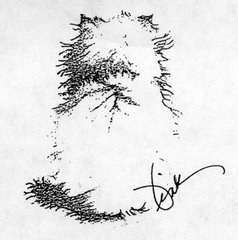













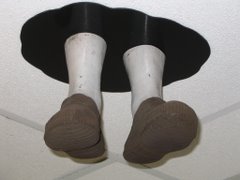



























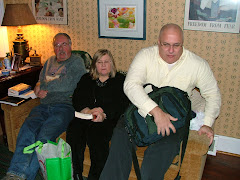
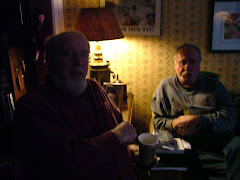

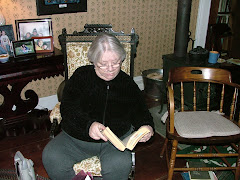
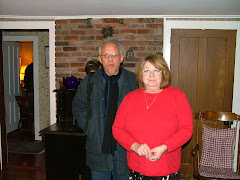
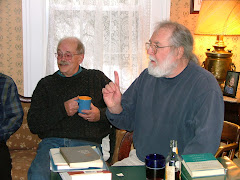
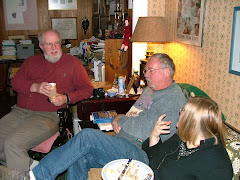

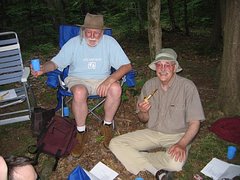
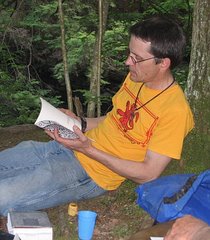


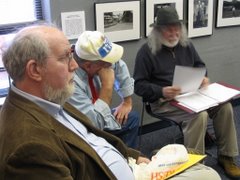
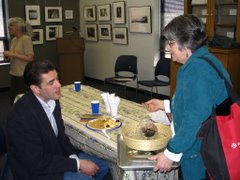


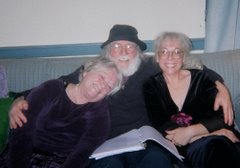

A minor correction to Paul's piece about my poem - it's not that there was no hard feeling about my mother's ring, I was just shocked to find it so obviously in the poem - I had not meant for that to creep in at all - and yet, there it was for all to discover. Alas, even the most veiled feelings do reveal themselves when one is not paying attention.
ReplyDeleteGreat blog, Paul! A quick review of your poem - I am not surprised you are now an award-winning poet. This poem about the kid and the communion wine has a great authenticity to it, and I appreciate your clear voice and your no-nonsense poetry. Bravo!
Mimi